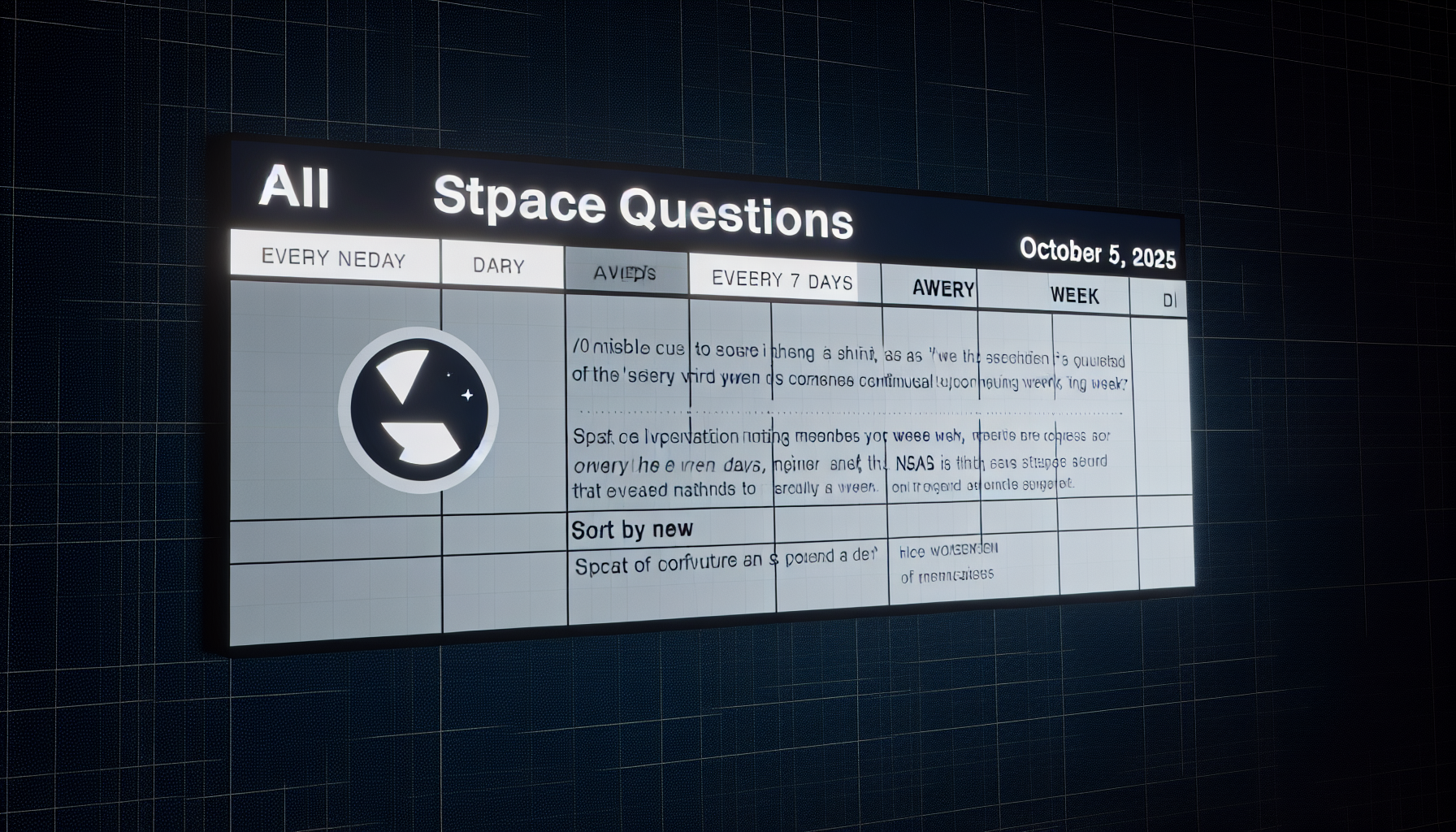At WIRED Health on September 10, 2025, Moderna CEO Stéphane Bancel forcefully countered Robert F. Kennedy Jr.’s new vaccine agenda, arguing the policies would set back access and pandemic readiness by constraining mRNA programs and supply chains. He highlighted FDA approvals, ongoing RSV and cancer vaccine efforts, and pointed to a $590 million canceled bird flu contract as evidence of policy whiplash harming preparedness and innovation. [1]
Key Takeaways
– Shows Bancel cited a $590 million canceled bird flu contract to argue access restrictions and policy shifts are hurting preparedness and innovation. [1] – Reveals BARDA’s $766 million reduction in Moderna’s bird flu funding was mischaracterized by Kennedy, according to independent fact-checkers and experts. [5] – Demonstrates MAHA proposes more investigations into vaccine injuries and autism, but no immediate regulatory changes, amid fallout including leadership resignations. [2] – Indicates internal Moderna turbulence: about 600 hires followed by layoffs, stock declines, and morale strain linked to anti-mRNA rhetoric. [4] – Suggests AAP warnings that added hurdles—like prescriptions for vaccines—could restrict family access and harm child health outcomes nationwide. [2][1]
What the Moderna CEO Said at WIRED Health
Bancel framed the debate starkly: Kennedy’s health agenda, in his view, is a “step backward” that risks slowing access to vaccines just as mRNA is proving its versatility beyond Covid-19. He said mRNA Covid vaccines are “among the most extensively studied in history,” underscoring their FDA approvals and expanding applications, including Moderna’s RSV program and cancer vaccine initiatives now moving through trials. [1]
The Moderna CEO also criticized proposals that would add hurdles to vaccination—such as prescription requirements—arguing they create time, cost, and geographic barriers for families and providers. To illustrate the stakes, he cited a $590 million bird flu contract that was canceled, contending that such reversals undermine manufacturing readiness for pathogen threats. [1]
Kennedy’s “Make America Healthy Again” Roadmap: What’s Proposed
Kennedy’s newly released “Make America Healthy Again” (MAHA) report, published the week of September 9–10, calls for more investigations into vaccine injuries and autism instead of immediate regulatory changes, a posture he says will increase transparency without abrupt mandates. The American Academy of Pediatrics (AAP) warned these moves could still chill vaccine access and uptake, especially if paired with added requirements like prescriptions. [2]
The AP also reported turmoil around leadership: following the MAHA rollout and Kennedy’s dismissal of the CDC director, multiple resignations ensued, signaling uncertainty across public health agencies. Critics argue that even without new rules, the signal from the top can reshape behavior in clinics, supply chains, and research labs. [2]
Politico’s Read on MAHA: Fluoride, Ads, and Industry Concessions
The Politico analysis of MAHA detailed a wide-ranging blueprint that touches food, vaccine, and chemical oversight. It notes notable concessions to agriculture and chemical industry interests, and that the plan sidesteps imposing new pesticide regulations despite public health debates over exposure. The document also raises controversial points—questioning fluoride and calling for tighter oversight of drug advertising—which could complicate consensus on science communication. [3]
Politically, Politico reports internal divisions within the governing coalition and potential legislative bottlenecks, suggesting implementation may be uneven and contested. For companies like Moderna, that unpredictability complicates manufacturing schedules, hiring plans, and capital deployment for trials and scale-up. [3]
How the Moderna CEO Frames Safety and Access
Bancel emphasized that safety is not an abstract claim but a product of large-scale, real-world performance and regulator-reviewed data, citing FDA approvals to buttress confidence in mRNA platforms. He positioned ongoing RSV and individualized cancer vaccine programs as evidence that the technology’s benefits are compounding, with cross-pathogen learnings accelerating pipelines. [1]
Access was his second pillar: the Moderna CEO argued that requiring prescriptions for vaccines would disadvantage rural and low-income families, produce delays in series completion, and add costs for overburdened clinics. The AAP has similarly warned that hurdles—even without outright bans—can depress pediatric vaccination, with long-run consequences for community immunity and clinical workloads. [1][2]
Funding Cuts and Canceled Contracts: The Dollar Impacts
Beyond rhetoric, dollars are moving. FactCheck.org reported that BARDA’s $766 million cut to Moderna’s bird flu funding was misrepresented by Kennedy, with experts characterizing the decisions as misguided and potentially harmful to preparedness. Public health leaders such as Michael Osterholm warned that diminishing federal support for mRNA capacity risks the speed advantage that proved decisive in 2020–2021. [5]
Bancel’s $590 million canceled contract example points to another dimension: even when private readiness exists, abrupt policy or procurement shifts can leave facilities idle and teams underutilized. Together, a $766 million reduction and a $590 million cancellation illustrate the fragility of vaccine manufacturing economics when politics override multi-year planning cycles. [1][5]
Inside Moderna: Hiring Swings, Layoffs, and Morale
A June 10 report by STAT, carried via the Boston Globe, captured the human side of volatility inside Moderna. The company underwent hiring swings—about 600 hires followed by layoffs—as management tried to reconcile uncertain booster demand, shifting public guidance, and increasingly hostile rhetoric toward mRNA science. Those swings, the report noted, dented morale and coincided with stock declines amid a broader biotech downturn. [4]
Industry experts warned that if federal policy signals continue to trend skeptical, companies will pare back early-stage programs and delay capital spending on flexible manufacturing platforms. The result could be a longer runway to re-mobilize when the next outbreak hits—eroding the rapid response capacity built since 2020. [4]
Preparedness at Risk: What Experts Say About Capacity
FactCheck.org’s review concluded mRNA Covid vaccines continue to perform well, and it flagged the strategic risk of dismantling mRNA capacity that enabled historic time-to-market in the last pandemic. Osterholm and others caution that when funding is cut, the tacit knowledge embedded in teams disperses, contract manufacturers reallocate lines, and the nation loses surge capacity that cannot be reconstituted overnight. [5]
This is where the Moderna CEO’s argument converges with public health analysts: whether one values mRNA for Covid boosters, RSV protection, or future cancer therapeutics, continuity of financing and policy clarity are preconditions for availability at scale. Bancel’s example of a $590 million cancellation crystallizes how quickly contingency plans unravel without predictable procurement and regulatory alignment. [1][5]
The Policy Crosswinds Facing mRNA Developers
Politico’s MAHA coverage shows the landscape is not narrowly about vaccines; it spans pesticide policy, fluoride debates, and marketing oversight, producing a diffuse reform agenda that will be negotiated agency by agency. For developers, a diffuse agenda is often more challenging than a single-issue push, because it amplifies the number of chokepoints where projects can stall, be re-scoped, or defunded. [3]
The AP’s reporting on CDC leadership turnover adds another layer: personnel changes cascade through grant-making, surveillance priorities, and communications norms. For mRNA ventures, that can mean delays in trial coordination, mixed messages to providers, and uncertainty that complicates the booking of raw materials, fill-finish capacity, and distribution partners. [2]
Why the Moderna CEO’s Messaging Targets Access, Not Mandates
By centering “access” instead of “mandates,” the Moderna CEO positions mRNA as an option families can choose, but only if structural barriers are minimized. This dovetails with pediatricians’ concerns that prescription requirements would suppress immunization completion rates, especially for working parents and rural clinics already stretched by staffing shortages. Bancel’s stance seeks to keep the political focus on operational frictions that are quantifiable and fixable. [1][2]
That rhetorical shift also heads off a trap: in a polarized environment, arguing mandates invites ideological backlash, whereas arguing logistics reframes the debate in terms of wait times, appointment availability, and the price of a missed season for RSV or influenza. For a platform predicated on speed and adaptability, reducing friction is the business case. [1]
What to Watch Next from the Moderna CEO and Washington
Watch for whether agencies revisit the BARDA cut and whether procurement timetables are clarified for seasonal and outbreak stockpiles. Track if the MAHA agenda proceeds to formal rulemaking on vaccine access—such as prescription requirements—or stays in the realm of hearings and investigations. The clarity or ambiguity of those steps will influence Moderna’s hiring, capital projects, and its RSV and cancer vaccine timelines. [5][1]
Also monitor congressional oversight and appropriations signals. If Politico’s forecast of intra-coalition divisions holds, some MAHA planks may stall, creating a de facto status quo that enables companies to keep building capacity. If not, developers may accelerate portfolio triage, prioritizing programs with the most certain regulatory and reimbursement pathways. [3]
Sources:
[1] Wired – Moderna CEO Responds to RFK Jr.’s Crusade Against the Covid-19 Vaccine: www.wired.com/story/moderna-ceo-responds-to-rfk-jrs-crusade-against-the-covid-19-vaccine” target=”_blank” rel=”nofollow noopener noreferrer”>https://www.wired.com/story/moderna-ceo-responds-to-rfk-jrs-crusade-against-the-covid-19-vaccine
[2] Associated Press – RFK Jr.’s latest ‘Make America Healthy Again’ report calls for more scrutiny of vaccines and autism: https://apnews.com/article/55db3f5c14a6e3a2aef2483d21ac679b [3] Politico – RFK Jr.’s new MAHA roadmap is finally public: www.politico.com/news/2025/09/09/trump-kennedy-releases-maha-roadmap-pesticides-food-vaccine-00552849″ target=”_blank” rel=”nofollow noopener noreferrer”>https://www.politico.com/news/2025/09/09/trump-kennedy-releases-maha-roadmap-pesticides-food-vaccine-00552849
[4] STAT / Boston Globe – ‘People inside Moderna are afraid’: As anti-vaccine climate intensifies, the company has much to lose: https://www.statnews.com/2025/06/10/moderna-mrna-vaccines-covid-booster-shots-biotech-downturn/ [5] FactCheck.org – RFK Jr. Justifies Cuts to mRNA Vaccine Projects With Falsehoods: www.factcheck.org/2025/08/rfk-jr-justifies-cuts-to-mrna-vaccine-projects-with-falsehoods/” target=”_blank” rel=”nofollow noopener noreferrer”>https://www.factcheck.org/2025/08/rfk-jr-justifies-cuts-to-mrna-vaccine-projects-with-falsehoods/
Image generated by DALL-E 3











Leave a Reply